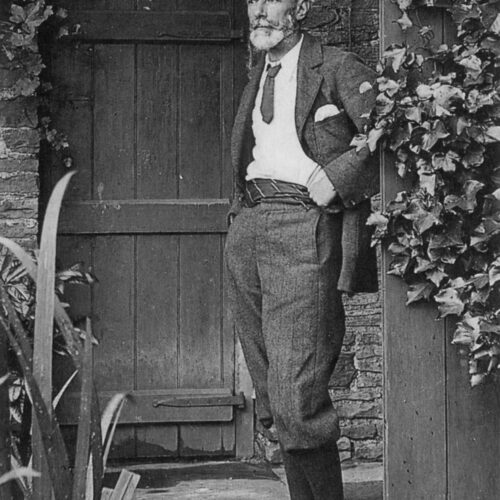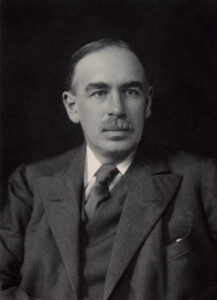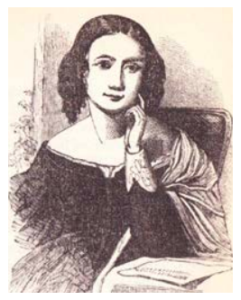

The British Society for the Study of Sex Psychology was officially formed in April 1914, ‘for the consideration of problems and questions connected with sexual psychology, from their medical, juridical, and sociological aspects.’ The Society intended to take a rational and non-judgemental approach to questions of sex and sexuality, aspiring to ‘greater sexual freedom in society’. Among its members were medical professionals, writers, researchers, and activists in numerous reformist movements, many of whom were humanists.
The origins of the BSSSP were an informal meeting of what was first conceived as The British Society of Psychiatry on 12 August 1913. This all-male group, chaired by German sexologist Magnus Hirschfeld, shared a primary interest in reforming the laws around homosexuality, and included Edward Carpenter and Laurence Housman, who would remain central to its later incarnation.
The Society’s inaugural meeting as The British Society for the Study of Sex Psychology took place on 8 July 1914 at The Medical Society in Chandos Street, London. Over the following decades, despite limited funds and a membership of never more than a few hundred, it drew members and visitors from a wide variety of professions and activist interests, many of whom were involved in other initiatives, like the World League for Sexual Reform. The BSSSP held meetings, hosted speakers, and circulated papers on subjects spanning sex education, birth control, marriage and divorce, homosexuality, obscenity, and sunbathing.
Four individuals were considered its cornerstones: writers and campaigners Edward Carpenter, and Laurence Housman, criminologist George Ives, and naturalist Bertram Lloyd. Suffragist and actor Cicely Hamilton was the group’s first female member, though involvement for women on the same terms as for men was described as a fundamental principle of the Society. Indeed, most of the Society’s medical professionals were women, and female representatives from movements including suffrage and divorce law reform were plentiful.
In 1918 Stella Browne wrote an article about the BSSSP (‘A New Psychological Society’) in the International Journal of Ethics (itself founded by leaders of the international Ethical movement) in which she discussed the origins and efforts of the BSSSP:
On the occasion of the International Medical Congress in London, during the summer of 1913, the need for unprejudiced and thorough investigation of sexual divergences from average habits and standards was brought forcibly to the notice of a small group of men of letters, and workers for various humanitarian and democratic causes… However grudgingly and imperfectly, light was being at last let into some of the dark places where life still agonised and decayed, and the initiators of the British Society for the Study of Sex Pyschology felt the need for “more light”; and particularly in the case of members of the specially privileged and responsible medical, legal and educational professions. In all these three professions, in spite of treasures of goodwill and knowledge, experience and devotion, there still exists a tragic ignorance of certain profound and ineradicable human tendencies. And even those persons who see and admit the importance of these tabooed subjects and who help generously in individual cases of hardship, are, too often, unable or unwilling to demand a revision – or, at least, a suspension pending enquiries – of social judgement.
In 1930, the BSSSP became The British Sexological Society, continuing into the 1940s. Of its character, historian Lesley A. Hall has written that an ‘attitude of open-minded enquiry, and refusal to accept conventional dogma about sex and gender… permeated the works of these writers and the BSSSP’. Laurence Housman, who described the group as ‘a note of interrogation’, later wrote of his conviction that the efforts of the British Society for the Study of Sex Psychology had been ‘instrumental in helping to form a new public opinion—or a new open-mindedness towards sex’.
Browne, F. W. Stella, ‘A New Psychological Society’ in International Journal of Ethics, Vol. 28: 2 (January 1918), pp. 266-269
Hall, Lesley A., ‘‘Disinterested Enthusiasm for Sexual Misconduct’: The British Society for the Study of Sex Psychology, 1913-47’ in Journal of Contemporary History, Vol. 30:4 (October 1995), pp. 665-686
Records of the British Sexological Society at The Harry Ransom Center, University of Texas

Words ought to be a little wild, for they are the assault of thoughts upon the unthinking. J.M. Keynes in […]

Everywhere man blames nature and fate yet his fate is mostly but the echo of his character and passion, his […]

Oh what a tissue of inconsistencies are the dogmas in which we have been reared! Emma Martin, God’s Gifts and […]

Derek Lennard was a longtime member and former chair of LGBT Humanists—then known as the Gay and Lesbian Humanist Group […]